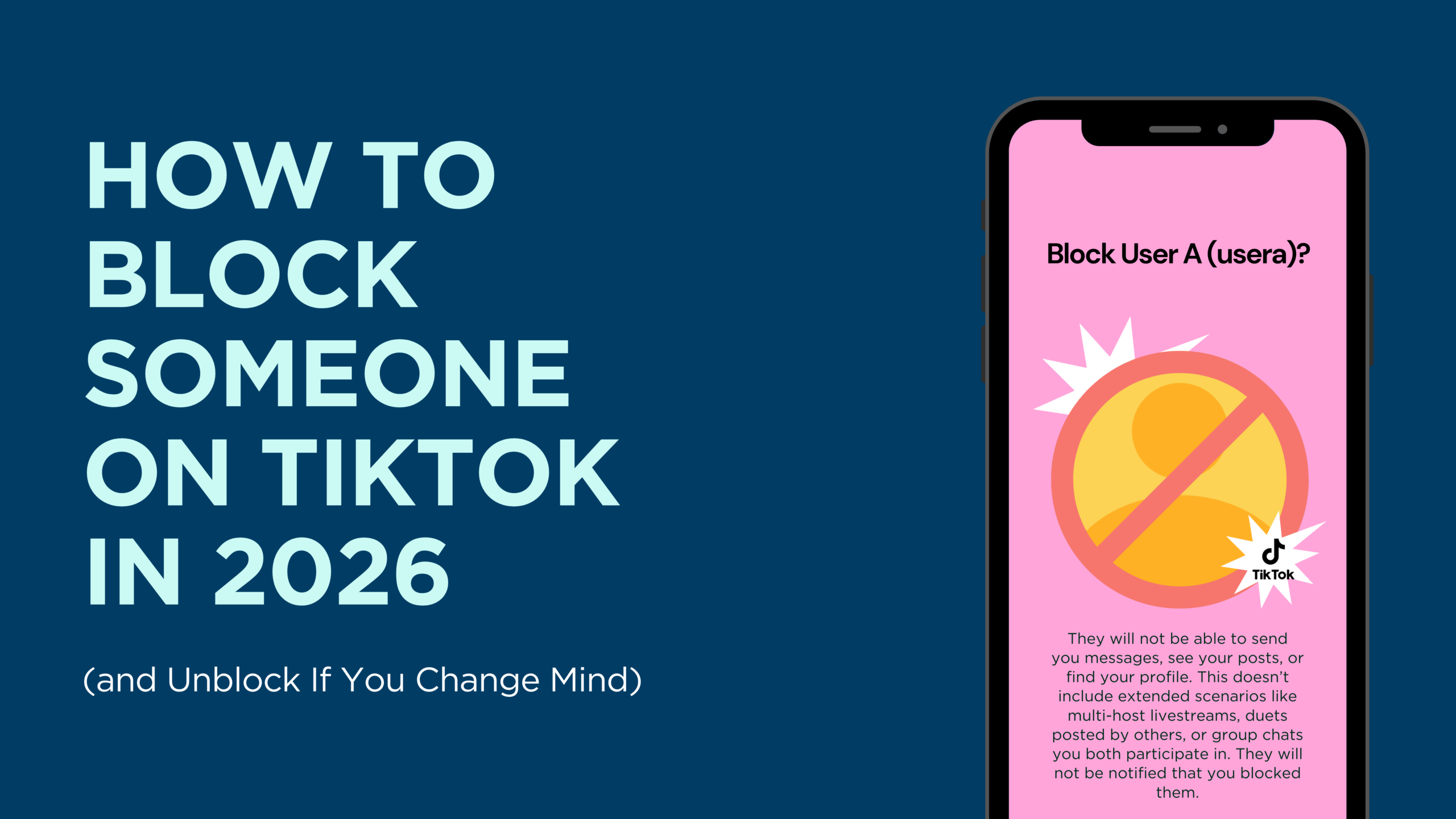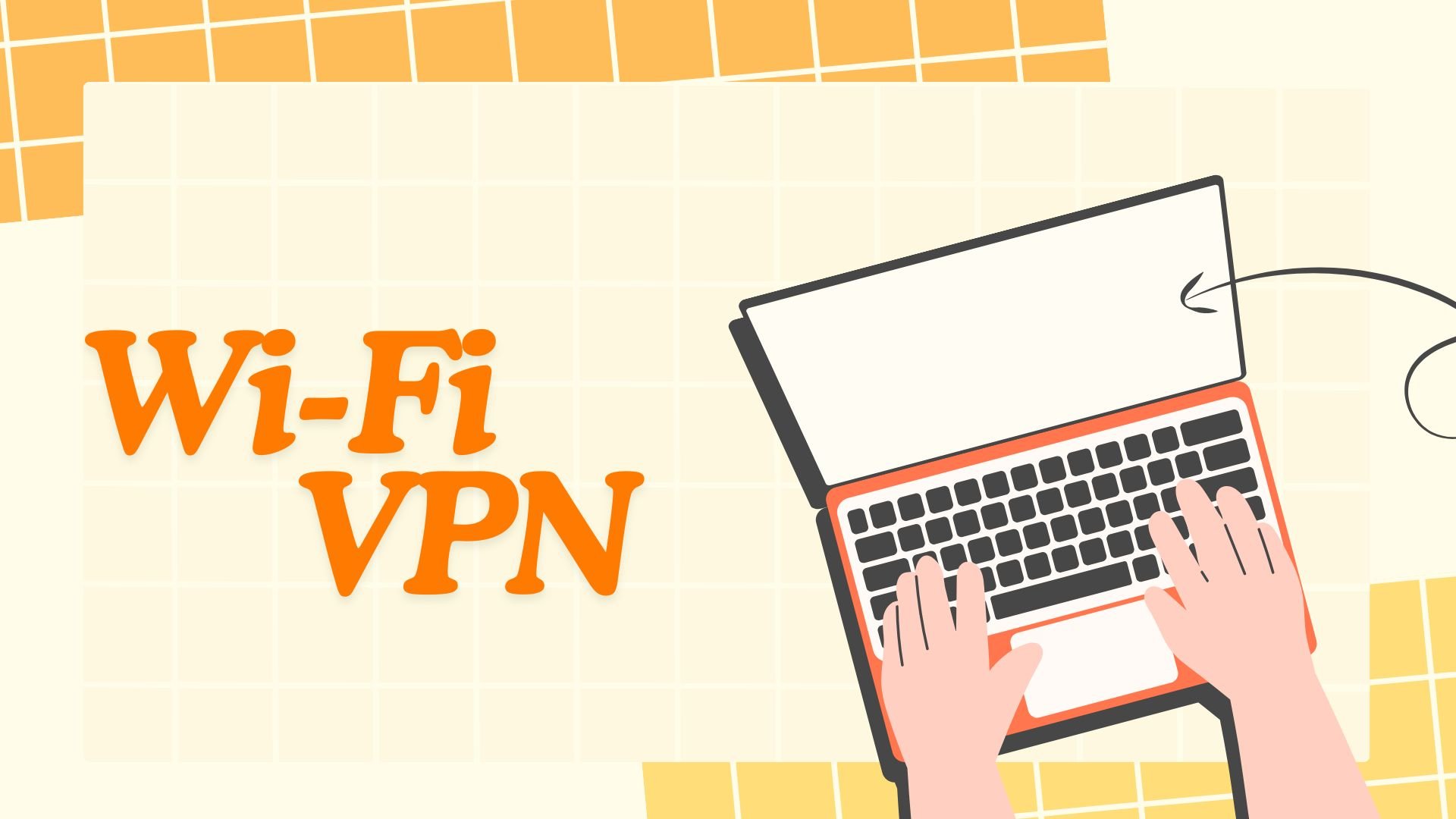
As we connect to Wi-Fi everywhere, do you know that there might be someone watching you secretly behind the connection? A Wi-Fi VPN is your best defense. It acts as a secure tunnel and shields your footprint from prying eyes. Read on to learn how it protects us on public Wi-Fi and follow easy steps to set it up for enhanced security.
Table of Contents
What Is a Wi-Fi VPN?
Wi-Fi VPN is another name for VPN service that protects your online privacy while connected to Wi-Fi networks, especially public ones. It creates an encrypted tunnel that securely routes your data to a remote VPN server, making it unreadable to hackers and other potential threats.
Public Wi-Fi Threats & Consequences
Now that we know a Wi-Fi VPN is a protection tool, what exactly does it protect us from? Here are the major threats and consequences of a public Wi-Fi network.
Major Threat on Public Wi-Fi – MitM
According to JumpCloud Cybersecurity Research, 19% of successful cyberattacks in 2024 are Man-in-the-Middle (MITM) attacks. MITM attack, simply put, is when a hacker secretly puts himself between you and the Internet, and all the data you send and receive passes through his device. Three common types of MitM are:
1. Packet Sniffing
Packet sniffing is the technique used to intercept and analyze data packets transmitted over a network. Cybercriminals use sniffing tools to steal sensitive information such as your passwords and login credentials.
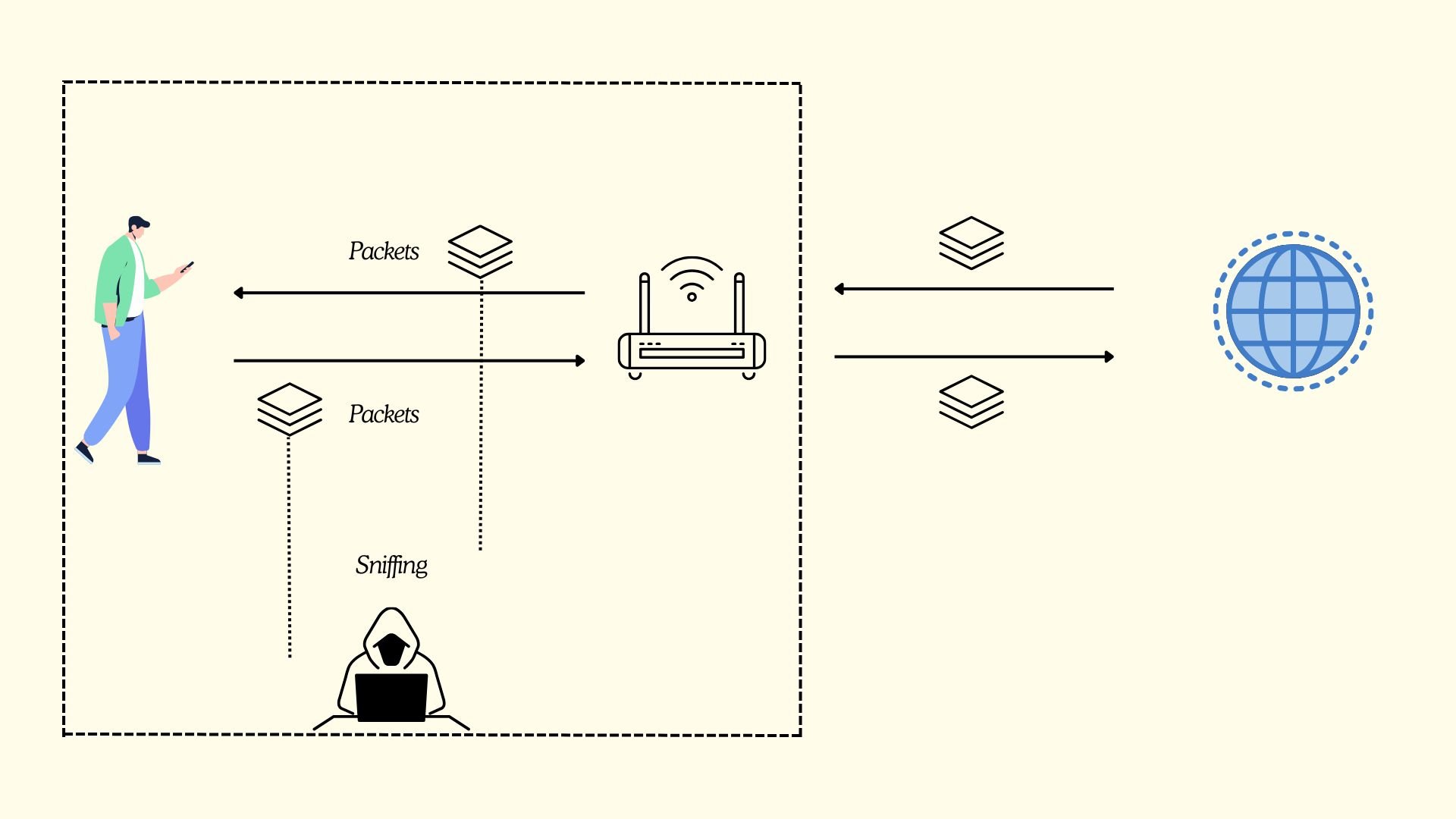
2. Evil Twin Attack
Evil Twin Attack refers to the threat that hackers create a seemingly legitimate free Wi-Fi to trick you into connecting. For example, a fake ‘5G Airport Wi-Fi’. Once connected, all of your online data will flow through the attacker’s device.
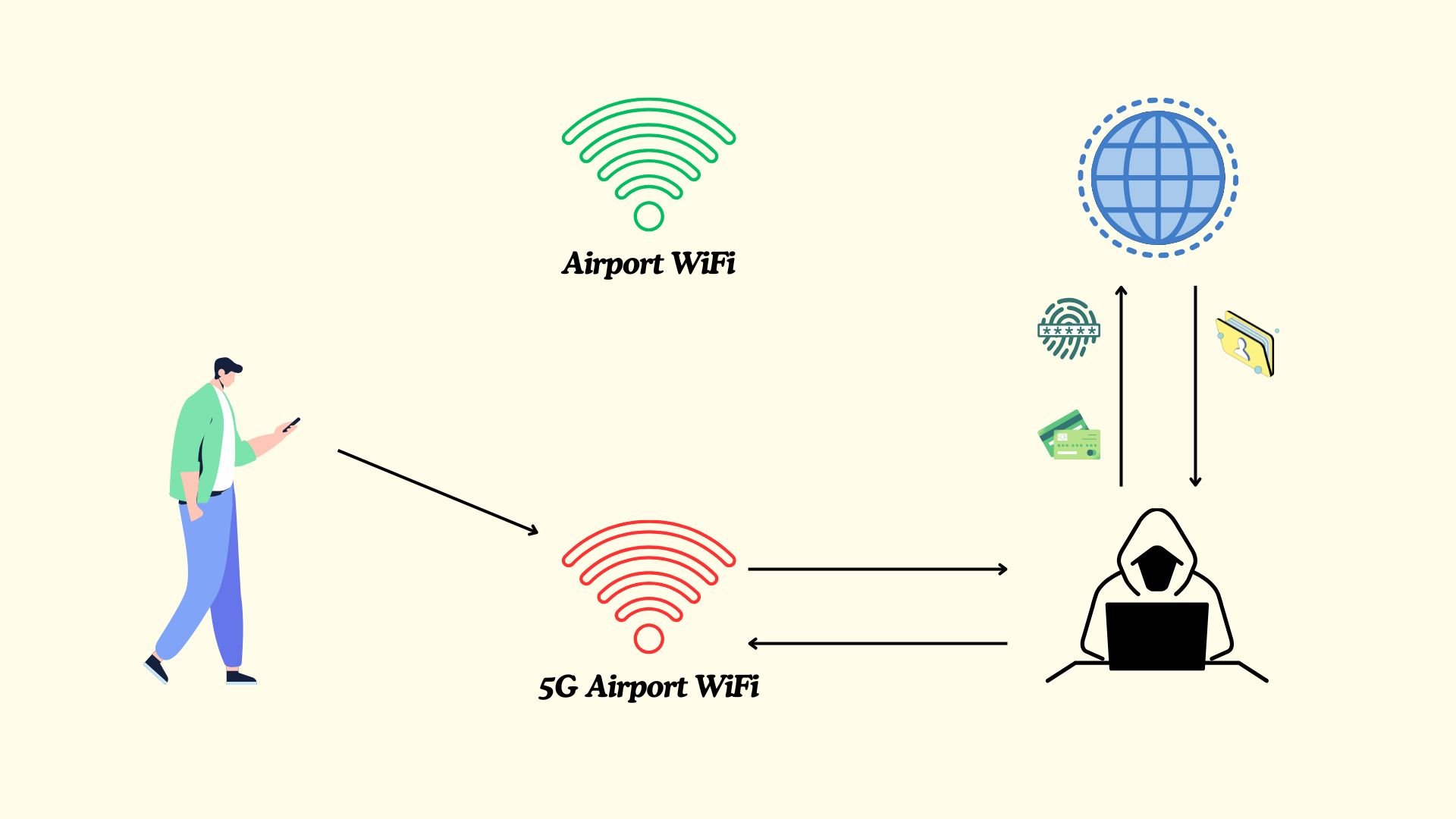
3. DNS Hijacking
DNS hijacking is the practice of hackers tampering with DNS settings and redirecting the legitimate website you want to visit to a fake website that looks exactly the same but is used for malicious purposes.
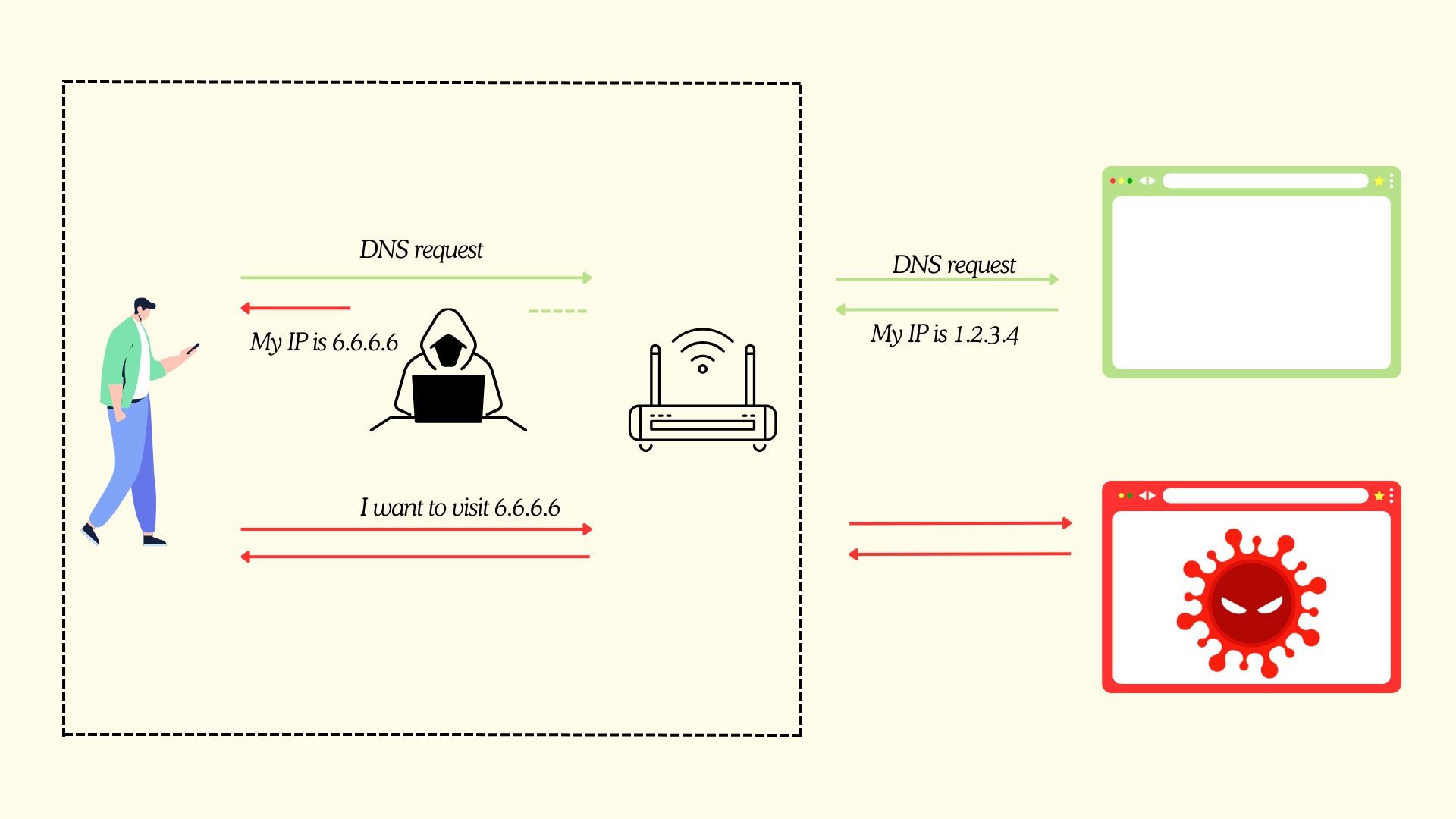
Consequences of MitM on Public Wi-Fi
When a man-in-the-middle attack occurs, you think you’re just browsing casually in a data-saving way, but in reality, all your secrets are exposed to a stranger.
Stolen identity credentials
Data breaches and privacy violations
Malware Injection
All these can bring you inconveniences and lead to financial loss. Faced with this, Wi-Fi VPN builds you the first line of defense.
Does VPN Protect You on Public Wi-Fi?
Yes, absolutely. A VPN is one of the most effective tools you can use to secure your connection. How does VPN work with Wi-Fi?
1. Tunnel and DNS Protection
Once connected, Wi-Fi VPN establishes an encrypted VPN tunnel and enforces the use of its private DNS servers.
Your DNS requests are protected within the tunnel and cannot be hijacked or tampered with.
2. Full-Time Encryption
All your network requests, such as accessing online banking, are encrypted by the VPN before they are sent. Data is transmitted in ciphertext over public Wi-Fi and directly to the VPN server.
Any man-in-the-middle can only capture unreadable gibberish. The encrypted tunnel prevents hackers from decrypting, eavesdropping, or tampering with your data.
3. Secure Communication
The VPN server decrypts your request, accesses the target website on your behalf, and then encrypts the returned data again, securely sending it back to your device through the tunnel.
All data traveling back and forth remains encrypted and secure at all times.

However, it’s critical to understand that a VPN is not an all-around “magic shield”. It can not protect your account and password if you submit them on malicious websites you visit.
Best VPN for Public Wi-Fi
In terms of protecting users on public Wi-Fi, X-VPN stands out as a trusted option for its robust encryption, complete security features, and specially designed tools against data breach, like a Dark Web Monitor, Tracker Blocker, Download Protection, etc. Most importantly, we insist that cybersecurity is a basic human right, thus we provide an unlimited free version for everyone.
Free VPN for Wi-Fi Protection
AES-256 Encryption & No-Logs Policy
Various Data Protection Features
Stay Safe on Wi-Fi with VPN in 3 Steps
Securing your connection on public Wi-Fi is easy with X-VPN. Just follow these 3 key steps whenever you join a public Wi-Fi.
Step 1. Download and install X-VPN on your phone or computer.
Step 2. Before browsing on the Wi-Fi network, open X-VPN and tap the ” Connect” button instantly.
Step 3. Now you are all set to enjoy the internet.
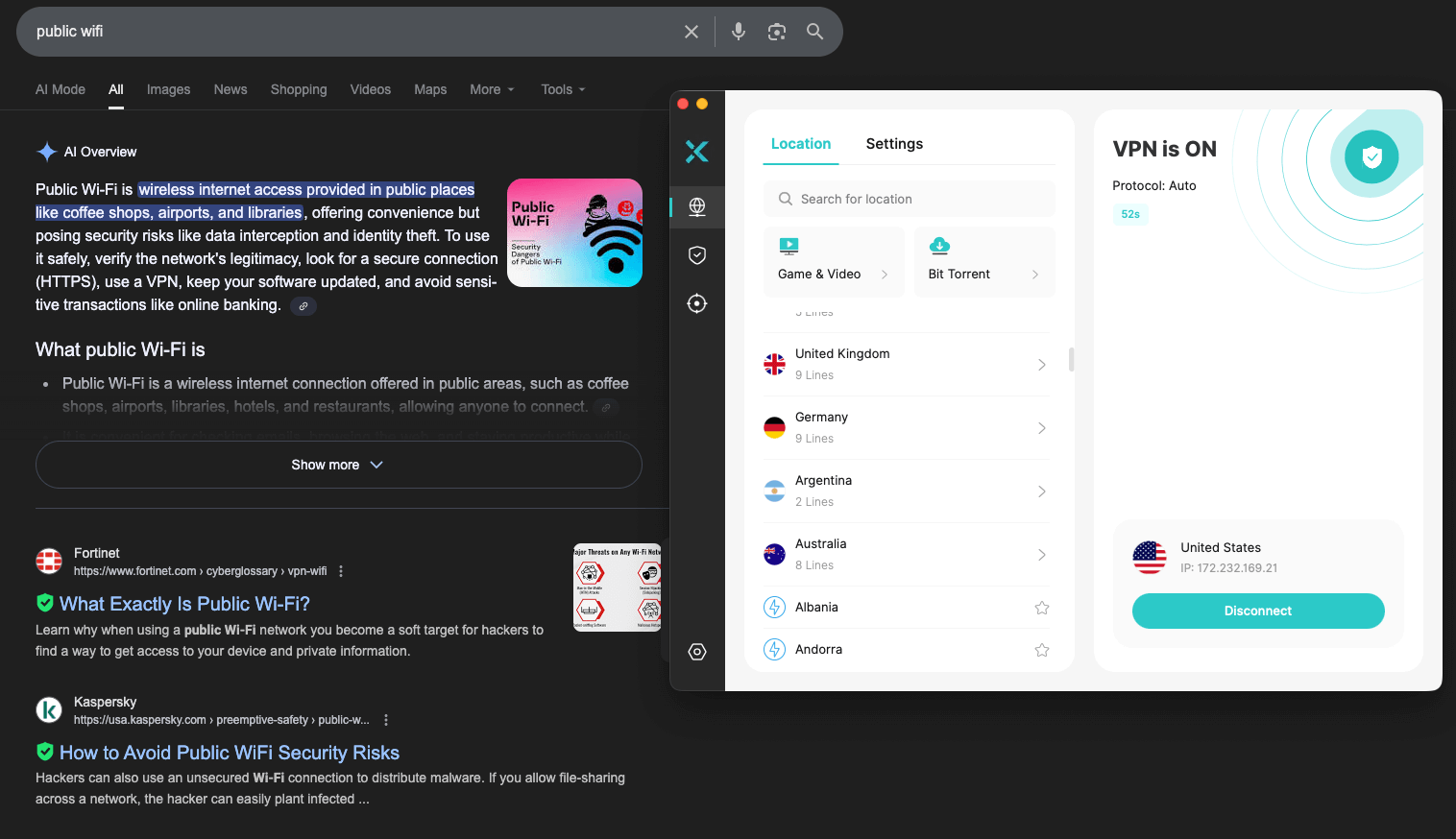
Ongoing Public Wi-Fi Security Tips Beyond a VPN
As mentioned before, a VPN is not a magic shield against all cyber attacks. To build a complete defense, pair your VPN with these essential security habits on public networks.
1. Strong Passwords & 2FA
A VPN protects your data while it’s in transit, but it can’t prevent hackers from using weak, guessed passwords to log into your accounts. Therefore, create long, complex passwords for all your important accounts, and enable two-factor authentication to stay secure.
2. Be Alert to Downloads
Don’t click on links from unknown sources or download unexpected attachments in emails. Be skeptical of any file downloads on public networks. Scan the file for viruses before opening it to ensure mobile and computer security.
3. Don’t Give Away Your Credentials
A VPN can’t protect you if you’re actively handing over your information to scammers. Be cautious of any portal that asks for your information, and be alert to online phishing scams.
Conclusion
Though convenient, the risks of public Wi-Fi are real. Always enable a trusted VPN for Wi-Fi, combined with good cybersecurity awareness and habits. Protect yourself from malicious hackers and data breaches.
FAQs
Does VPN Hide Browsing History from Wi-Fi Owner?
Yes, a VPN can protect your Wi-Fi history from the Wi-Fi owner. They will only know that you are connected to a VPN server and the amount of data being transferred. All your specific browsing activities and online footprint are hidden inside the VPN tunnel.
Is It Safe to Use Public Wi-Fi with VPN?
Yes. A professional VPN encrypts your connection and protects your data from common public Wi-Fi threats. However, a VPN is no help if you enter your credentials on suspicious sites or download unknown files.
Is a Free VPN Good Enough for Public Wi-Fi?
It depends. There are free VPNs with security concerns. When opting for a free option, be sure to choose one with strong encryption, no reported data breaches, and a strict no-logs policy, like X-VPN does. There’s also a premium version which offers more global servers, better speed, and more security features.
Should I Leave My VPN on All the Time on Wi-Fi?
Yes, that’s the best practice. Keeping your VPN on whenever you’re connected to Wi-Fi ensures your privacy from both hackers and your internet service provider.
Should I Use a Wi-Fi VPN or Incognito Mode?
VPN is the one for true security. Instead of encrypting your online data or hiding your activities from Wi-Fi owners, Incognito mode only clears the history records on your device.




